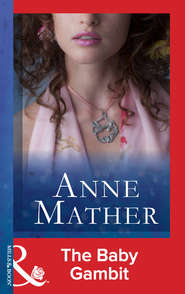По всем вопросам обращайтесь на: info@litportal.ru
(©) 2003-2024.
✖
Pale Dawn Dark Sunset
Автор
Год написания книги
2018
Настройки чтения
Размер шрифта
Высота строк
Поля
After a final word with Franco he crossed the yard where skinny chickens scratched a living and climbed into the dust-smeared Landrover that belonged to the estate. He raised a hand in farewell and started the engine with a flick of his wrist. He drove away from the humble collection of dwellings that clung to the mountainside down a track from which dust spurted liberally, creating a cloud of mud behind him.
The sun was rising and below him he could see the fertile acres of the valley thick with wheat and fruit orchards, exotic with colour and brilliance. This valley had been his home for more than thirty years, it was his heritage, the Cueras estate which his brother Juan now ran had been his inheritance.
But he had not wanted it. From an early age, he had been more interested in feeding the mind than the body, and the people and their problems had always been his primary concern. He and his father had clashed on that. The estate had been in the family’s hands for more than three hundred years, since the days of the conquistadores. His ancestor, Alberto Cueras, had been a rich and influential man in the old country—in Spain—but when he had come upon this fertile valley he had abandoned his ideas of returning to his homeland. He had built a house and put down roots, sent for his wife and children; and in the years that followed expanded his holding until today it was the largest in the district. Eldest son had followed eldest son, always working for the estate, always making more money, exploiting the workers and using the women for their own pleasure. Of course, in recent years, things had changed a little; large estates were no longer so common, although in these remote districts the quality of life had changed little over the centuries.
But Rafael had rebelled. Taught from childhood to take whatever he wanted as his right, he had followed his father’s example until its very selfishness had sickened him. He had been appalled the first time he had discovered his father had mistresses, but under his father’s guidance he had become accustomed to winning the affections of any woman that took his fancy. In truth, he had encountered no opposition. His lean frame and dark good looks had disarmed the most reluctant doncellas and he was always generous to those he pursued.
And then he went to university, and away from his father’s influence his innate decency began to assert itself. He no longer found the satisfaction of the senses an adequate substitute for books and learning and his studies began to occupy more and more of his time. During his vacations, the poverty of the peons or peasant workers, the deplorable housing conditions, the spread of disease—these things began to trouble him, and he no longer felt any identification with the inanimate chunk of land that was his heritage.
He didn’t really know what he would have done had his father still been alive. He knew the decision to abdicate from his responsibilities to the estate would have appalled him. But his father had died from a heart attack while Rafael was taking his degree in medicine, and it had been natural that his younger brother, Juan, who had never shown any intellectual leanings, and who had been there at the hacienda at the time of his father’s death should take over the running of the estate in Rafael’s absence.
After that, for a while at least, he had been content. He was able to practise medicine and things had been good. But restlessness had followed hard on the heels of his mother’s increasingly frequent urgings that it was time he got married, fathered sons to ensure the continuation of the Cueras line. Rafael had had no desire to get married, to have children. His youthful decadence had left its mark on him, and the placid Spanish girls produced for his delectation aroused no sexual interest in him. On the contrary, he had serious doubts that any woman could attract him now. And besides, he wanted to serve the community, not his family. And so, in spite of his mother’s tears and recriminations, he had taken the short step from uncertainty to the seminary…
Now the Landrover was crossing the plain scythed by the rushing, gleaming waters of the Rio Lima. On either side of the river stretched acres of wheat and maize fields. Lush vegetation sprang up the wooded walls of the valley, interspersed here and there by the brown thatched roofs of peasant dwellings.
Far across the valley, on a rise in the lower slopes he could see the rambling walls of a larger, more imposing building. This was the Hacienda Cueras, the place where he had been born, where he had lived until he went to university, where his mother and brother and younger sisters lived. But their demand of his services would have to wait for the present.
He crossed the river by means of a wooden bridge, its patched slats bearing witness to the numerous occasions it had been partially swept away by the rain-swollen waters. He could hear the chapel bells, too, increasing in persistence. Just ahead of him now, set among trees, the Capilla de los Inocentes looked like a bride dressed for her wedding. Its grey walls were hung with purple and white blossoms, tiny star-shaped flowers in the colours of the Eucharist. Already he could see women hurrying up the worn stone steps, drawing black scarves over their heads, and he felt the familiar sense of well-being that always came from this duty. This was what he wanted, he told himself. Everything else came after.
Later in the morning, when the sun was climbing steadily to its zenith, Rafael drove through the wide stone gateway that gave access to the grounds of the hacienda. Although it was still early the shutters were thrown wide, and the scent of beeswax which he always associated with its polished floors was in the air. He could remember sliding across them as a child, incurring the wrath of Jezebel, the housekeeper, who always knew who to blame when she found skidding marks of muddy feet marring the shiny surface. Jezebel, Rafael smiled. Whoever had chosen her name had paid little heed to the connotations of her namesake.
He walked into the wide hall and looked about him appreciatively. It was a beautiful old building and it never failed to please him. This hall, the two rooms adjoining, and the gallery above were all that was left of the original building, but successive generations had added to its bulk, strengthening its foundations and rebuilding where necessary so that today it rambled over half an acre, split level, and partially two-storied. The furnishings, much of them antique, had the worn patina of years upon them, but its faded elegance went well with the heavily carved panelling and baroque ironwork.
“Senor Rafael!”
The housekeeper’s voice was filled with warmth and devotion. So far as Jezebel was concerned, Rafael was still master here. She came towards him eagerly from the door at the back of the hall which led to the kitchens and servants’ quarters, taking one of his hands in both of hers.
“Good morning, Jezebel.” Rafael looked kindly on the elderly Indian woman who had served his family for over thirty years and who still ran the household with a rod of iron. “I had a message that Juan wanted to see me. Do you know where he is?”
Jezebel released his hand with reluctance, her fingers indicating the lines of sleeplessness around his eyes. “You do not take care of yourself in that little hut down in the village,” she exclaimed.
Rafael was patient. “It’s hardly a hut, Jezebel,” he protested mildly. “Where is my brother?”
‘señor Juan is breakfasting on the patio, señor. You have had breakfast?”
“As a matter of fact, no.” Rafael shook his head.
Jezebel glared at him disapprovingly. “You see? You do not eat—you do not sleep—”
“Jezebel, I had work to do last night—”
“Ay, ay!” Jezebel nodded her head. “Of course. I am remembering. It was the Maqueras woman, was it not? Her time had come. Her husband—he come here looking for you last night—very late!”
“That’s right.” Rafael moved his shoulders wearily. “Maria had another daughter. And now—I must see Juan.”
“I will bring you coffee and croissants, señor,” insisted Jezebel firmly, and Rafael inclined his head.
“That would be very nice, Jezebel,” he agreed, and with a faint smile he passed her and walked through the arched entrance to the reception lounge which opened out onto the patio at the back of the house.
Juan Cueras was seated in a cane-latticed chair at the glass topped table. He was like Rafael, yet unlike. Rafael was tall, lean and dark, his features clearly defined. Juan was not so tall and thicker set, and yet the similarity was there in the darkness of their skin, the curve of their brows, the thin firmness of their mouths. Juan’s mouth was perhaps a little fuller, a little more sensual, but that was only to be expected in a man who did not share his brother’s desire for asceticism. He looked up now, as Rafael came through the long glass doors to join him, thickly spreading an apricot preserve over the croissant in his hand. He took a mouthful, nodding at his brother in welcome, and then wiping his lips with a napkin he said:
“Good morning, Rafael. I see you got my message.”
“Did you doubt it?” Rafael lounged into the chair opposite his brother, flicking an insect from his sleeve. “But I’d be obliged if you’d be brief. I have a lot to get through today.”
Juan finished the croissant with evident relish, and poured himself more coffee, offering the jug to Rafael.
“Jezebel’s bringing me some more,” said Rafael, shaking his head. “She has this inescapable idea that I’m not looking after myself.”
“You’re not.” Juan was candid. “I simply can’t understand—” He broke off. “But we’ve had that argument before.” He pushed a jug of freshly squeezed orange juice towards the other man. “Go ahead—have some. I don’t enjoy eating alone.”
Rafael took the glass that was proffered and poured himself some of the fresh fruit juice. He tasted it experimentally and then, finding it to his taste, drained the glass.
“That’s better,” remarked Juan with a smile. “Don’t you think you deny yourself enough without including food?”
“I eat enough,” replied Rafael quietly, toying with the empty glass. “It’s perhaps a question of how little one needs. One should not gorge oneself when half the population of the world is dying of starvation.”
“And do you think if I deprived myself of one more croissant—one extra cup of coffee, I would be doing anything to aid those starving peoples?” exclaimed Juan impatiently
“We have had this argument before, Juan, as you pointed out,” observed Rafael, pushing the glass away from him.
Jezebel appeared with a laden tray, setting it down on the table and setting out a second coffee pot, cream and sugar, croissants and curls of butter, and more of the thick apricot conserve.
“Now you make a good meal, señor,” she instructed severely, casting a less than respectful glance in Juan’s direction. “Your brother, for once, can show you a good example!”
Rafael hid a smile as he obediently lifted a croissant on to his plate and spread it thinly with butter. Jezebel waited a moment to satisfy herself that he did indeed intend to eat it and then went away, muttering imprecations against anyone who neglected the common necessities of life.
Juan waited until Rafael was tackling his second croissant and then he said: “I wish you to do something for me, Rafael.”
Rafael looked up. “Yes?”
“Yes.” Juan felt about his person for his case of cheroots. “You remember the child from the mission, do you not?”
Rafael frowned. “The English girl—of course.”
Juan nodded, putting a cheroot between his teeth and making a second search for his lighter. “Yes. Well, it appears that her name may be Lucy Carmichael.”
“Maybe?”
“That is correct. As the child has apparently forgotten who she is, it is impossible to say with any certainty who she might be. But aboard this aircraft which crashed several weeks ago there was a family called Carmichael; mother, father—and daughter of some eight years.”
“I see. And you think this might be the child found by Benito Santos?”
“Well, it may be.”
“But is that possible? Where did this aircraft crash?”
“In the mountains—some eighteen miles from here.”











